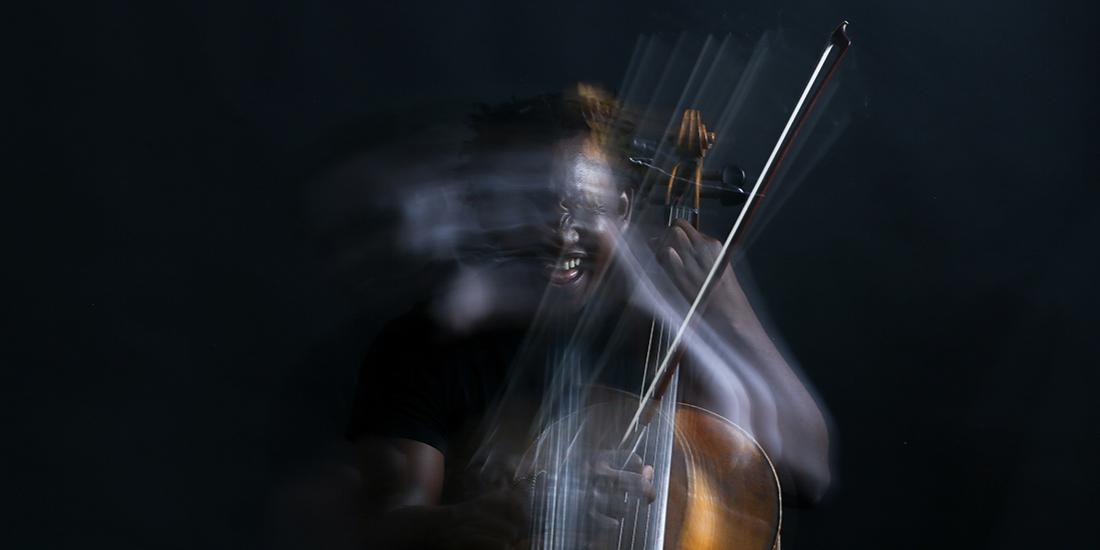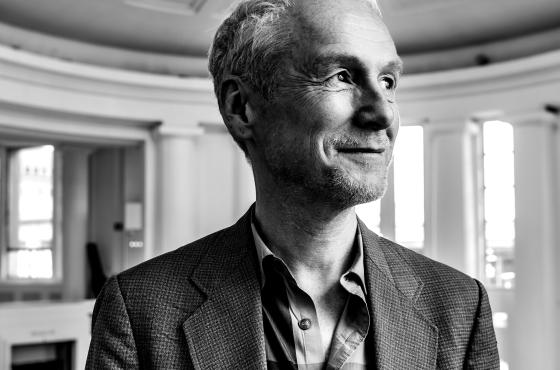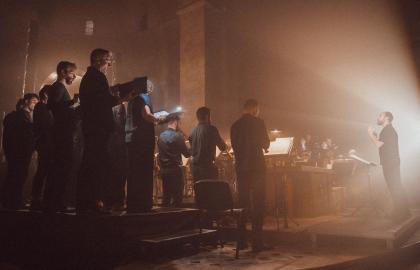Abel Selaocoe travelled to Manchester at the age of seventeen to study at the Royal Northern College of Music, for which he’d received a scholarship. He immersed himself in the classical repertoire during this time, but also began to question who he truly was. “At school, everyone played the cello brilliantly,” says Selaocoe, “so what purpose could I have in that cacophony of incredible cellists?” Composer and cellist Giovanni Sollima showed him the importance of improvisation and encouraged him to tap into his African background.
In violinist Rakhi Singh and Adam Szabo – the latter is the newly appointed Director of the BBC Philharmonic Orchestra – the South African cellist found kindred spirits. Singh and Szabo were frustrated by the lack of diversity in classical music, and they wanted to expand the repertoire. The Manchester Collective was born. Since 2016, the ensemble has been blowing a fresh breeze through classical music by connecting cultures. A programme such as Sirocco (featuring Stravinsky, Haydn, African traditionals and historic Danish folk) is not the exception, but the rule.
“I think that for a long time, people failed to find a link between classical music and other worlds”, says Selaocoe. “When you listen to jazz, you hear that this kind of link – a connection between cultures – has existed forever. Indigenous peoples from South America who play traditional music quickly bridge the gap to jazz. You see the same thing happening in South Africa. It’s high time classical music finds that connection too.”
Abel Selaocoe & Manchester Collective will play the Henry Le Bœuf Hall on 9 November.




